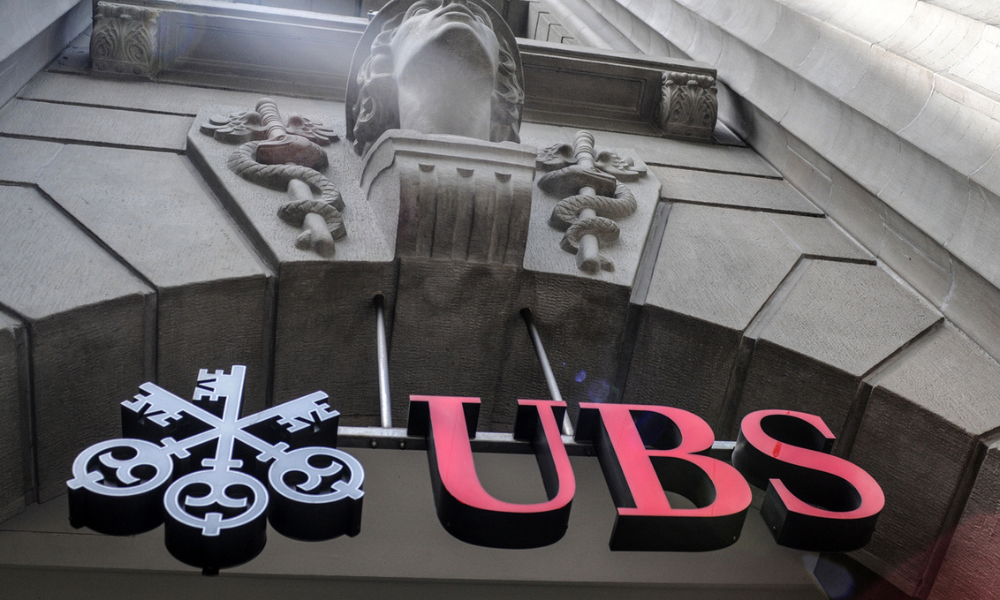

UBS Group said it would buy back up to $2 billion of its shares over the next two years, giving shareholders greater visibility on returns as the lender targets completion of its takeover of Credit Suisse.
The new program will begin Wednesday and end at the latest on April 2, 2026. “Our ambition is for share repurchases to exceed our pre-acquisition level by 2026,” the Zurich-based bank said in a statement Tuesday.
The bank confirmed previously announced plans to repurchase $1 billion of shares this year as part of the new program. Its shares were little changed in early morning trading in Zurich.
UBS also said its 2022 share repurchase program concluded on March 28. It halted that $5 billion share buyback program in April last year amid the government-backed takeover of its former rival.
The lender announced a restart of buybacks in February, signaling confidence over its integration with Credit Suisse. At the same time, the bank has posted two quarterly losses in a row as it grappled with the integration task.
Since closing the takeover of Credit Suisse in June, UBS has outlined major targets for the integration of its former rival including around $13 billion in cost savings, a boost from about $10 billion previously announced. The bank also confirmed its profitability targets through 2026.
Both Chief Executive Sergio Ermotti, who returned to lead UBS last year, and Chairman Colm Kelleher have warned that 2024 will be a more difficult year in terms of keeping costs down. The bank said it expects to complete the merger by the end of the second quarter.
Last month, the Swiss lender announced that it cut its bonus pool for 2023 by 14% despite record annual profit driven by the acquisition of Credit Suisse. The bonus allocation was a reflection of the impact from challenging operating conditions and market volatility, the bank said.
Ermotti received total compensation of around $16 million in 2023, making him the best-paid European bank CEO.

While industry statistics pointing to a succession crisis can cause alarm, advisor-owners should be free to consider a middle path between staying solo and catching the surging wave of M&A.

New joint research by T. Rowe Price, MIT, and Stanford University finds more diverse asset allocations among older participants.

With its asset pipeline bursting past $13 billion, Farther is looking to build more momentum with three new managing directors.

A Department of Labor proposal to scrap a regulatory provision under ERISA could create uncertainty for fiduciaries, the trade association argues.

"We continue to feel confident about our ability to capture 90%," LPL CEO Rich Steinmeier told analysts during the firm's 2nd quarter earnings call.
Orion's Tom Wilson on delivering coordinated, high-touch service in a world where returns alone no longer set you apart.
Barely a decade old, registered index-linked annuities have quickly surged in popularity, thanks to their unique blend of protection and growth potential—an appealing option for investors looking to chart a steadier course through today's choppy market waters, says Myles Lambert, Brighthouse Financial.
